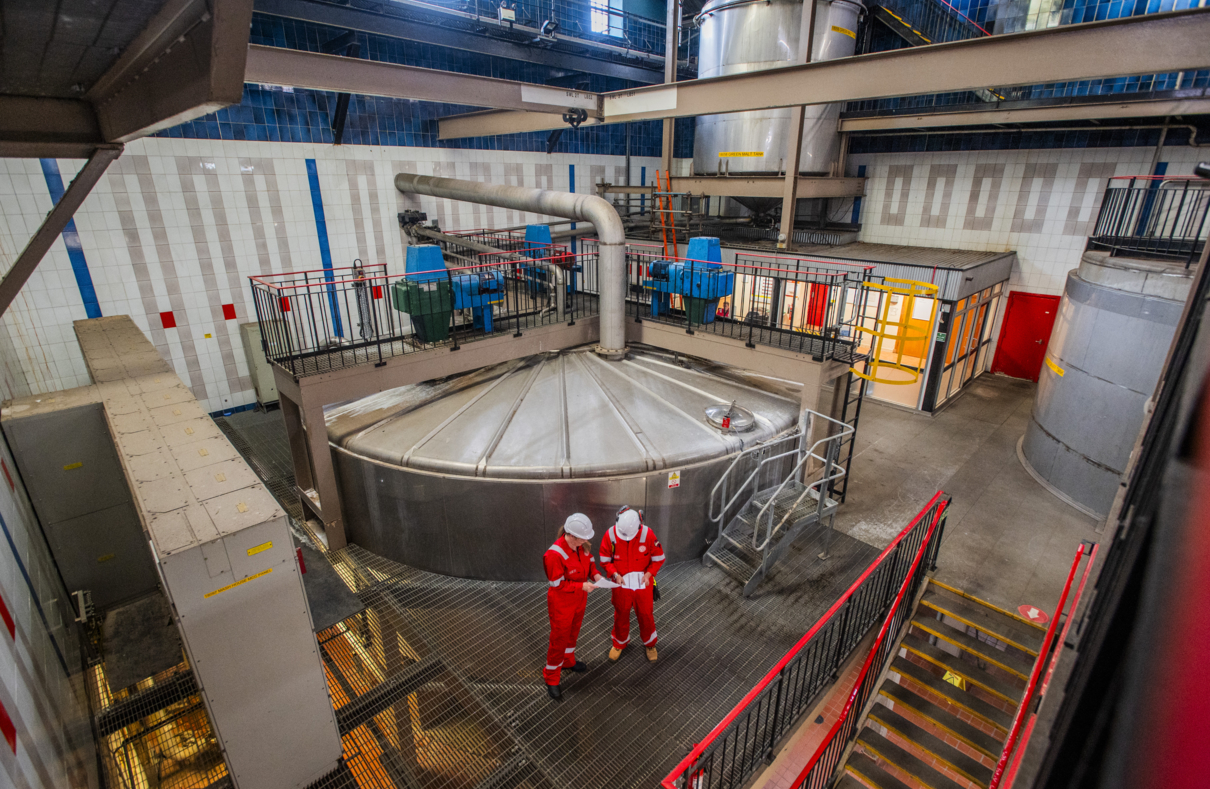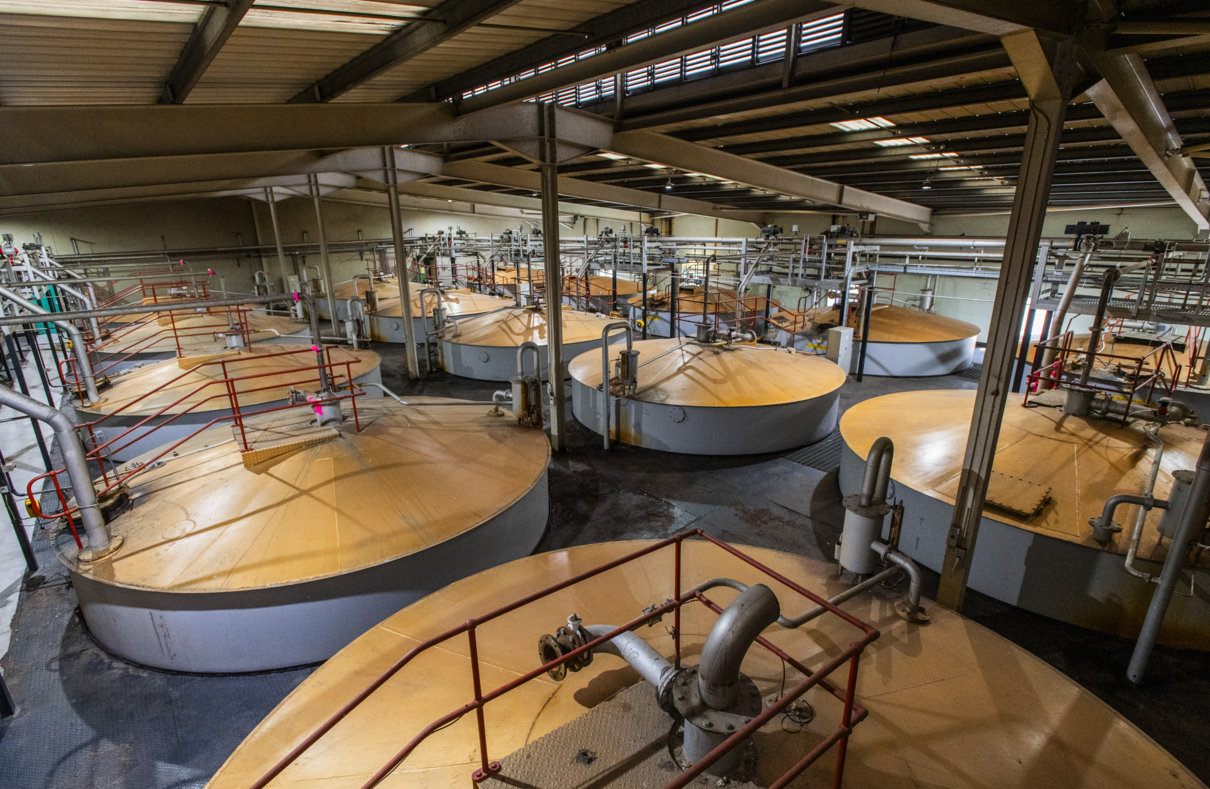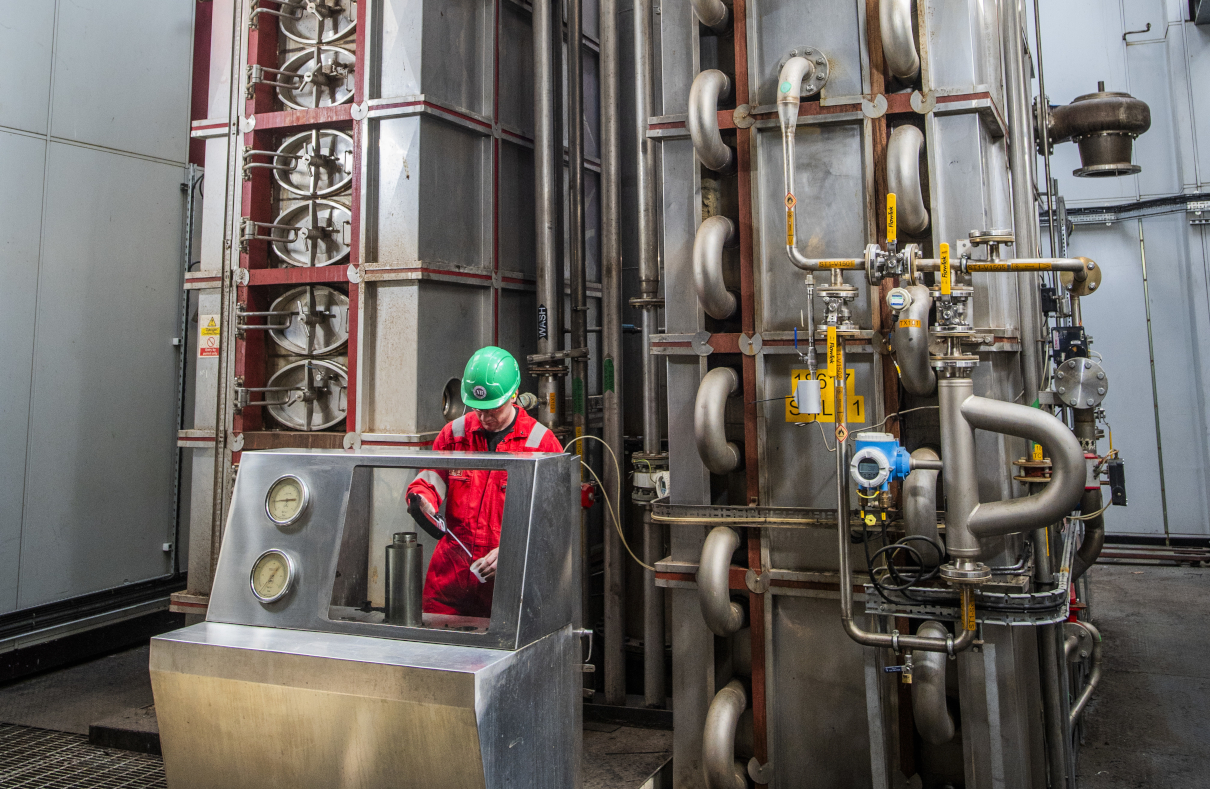Scotch Grain Whisky
The legal definition of Scotch grain whisky states that it may only be manufactured from four ingredients: water, malted barley, whole cereals and yeast. It must also be matured in Scotland in an oak cask of less than 700 litres capacity, for a minimum of three years.
Almost our entire production of North British grain whisky spirit is sold to customers for blending purposes. Quantities of North British grain whisky are included in many well-known blended brands.
Warehousing
Our main warehousing complex called Muirhall is situated in Addiewell, approximately 20 miles west of Edinburgh. The spirit arrives at Muirhall from Edinburgh in road tankers, and is pumped into spirit vats.
The first warehouse was built there in 1963, and the site now has capacity for approximately 130 million litres of alcohol, using steel racking or pallets for cask storage.
In 1888, the first full year of production at North British, the company produced one and a half million gallons of proof spirit. Now, over 130 years later, we can produce that volume in just five weeks!
Manufacturing whisky means we are bound by various forms of legislation. We are strictly regulated by key bodies such as HMRC, HSE and SEPA, and we carry out multiple laboratory and sensory evaluations of all spirit produced. North British is also certified to ISO 9001 (Quality Management System), FEMAS (Feed Materials Assurance Scheme) and FSSC 22000 (Food Safety System Certification).
By-Products
Animal Feed
All the solid and the majority of the liquid residues from the grain whisky process create a high quality, natural food for farm animals. At full capacity, the plant can produce 50,000 tonnes per year of Distillers Dark Grains – a mixture of the solids separated after the mashing stage, smaller particles of solids separated from the spent wash after distillation, and a syrup, also produced from the separated spent wash. The dark grains are compressed and extruded through a machine to create small pellets, which are easier to store and handle, and easier for the animal to eat – like eating bread instead of flour!
Electricity
Some of the liquid residues from the grain whisky process are converted into biogas in an Anaerobic Digestion plant. The biogas, which contains up to 70% methane, fuels a gas engine which drives an alternator that generates up to 450kW of electricity. All electricity generated is used on site.
The average home uses between 8.5 and 10 kWh per day. North British can generate up to 10,800kWh per day therefore suppling between 1,000 and 1,270 homes.
We can produce enough feed for
6,000
cows every day.
The Process
Malting
Malting is the process of encouraging barley to germinate. The barley is steeped in water to increase its moisture content to over 40%. The barley is then transferred to a malting box, where the controlled conditions of moisture and temperature allow it to germinate - a process normally taking five to six days. During germination, barley produces large amounts of enzymes - natural chemicals used by the seed to convert starch into sugar. The barley begins to grow, and small rootlets appear. At this stage, the grain is called green malt.






